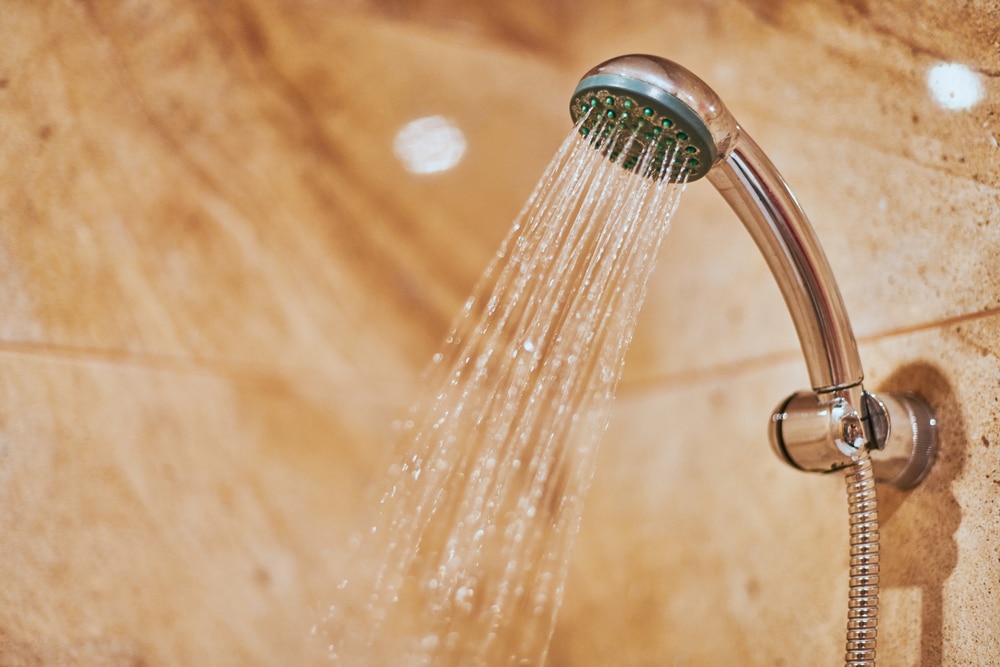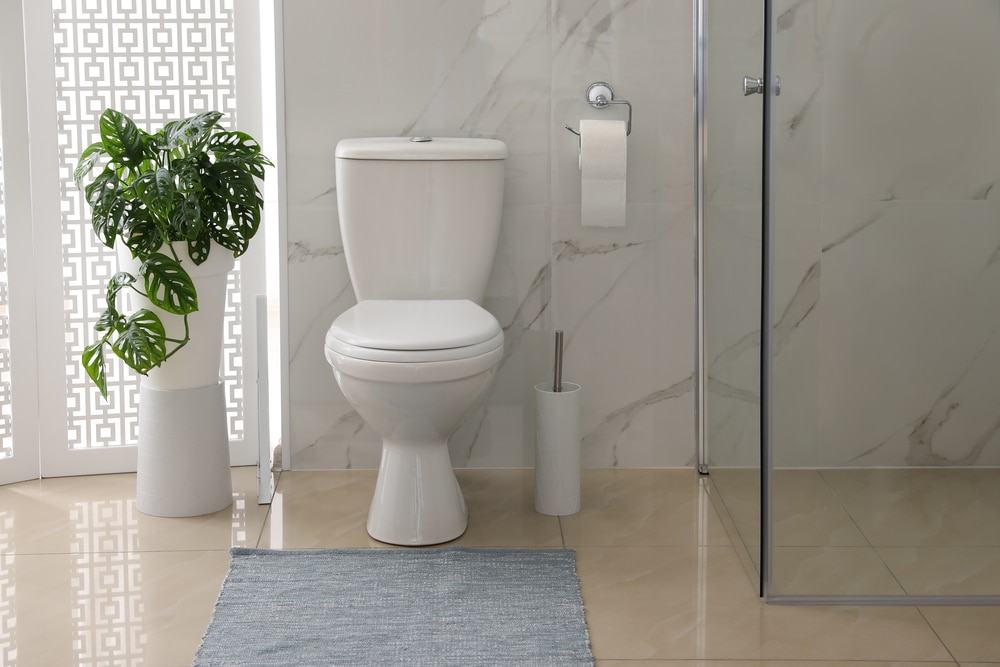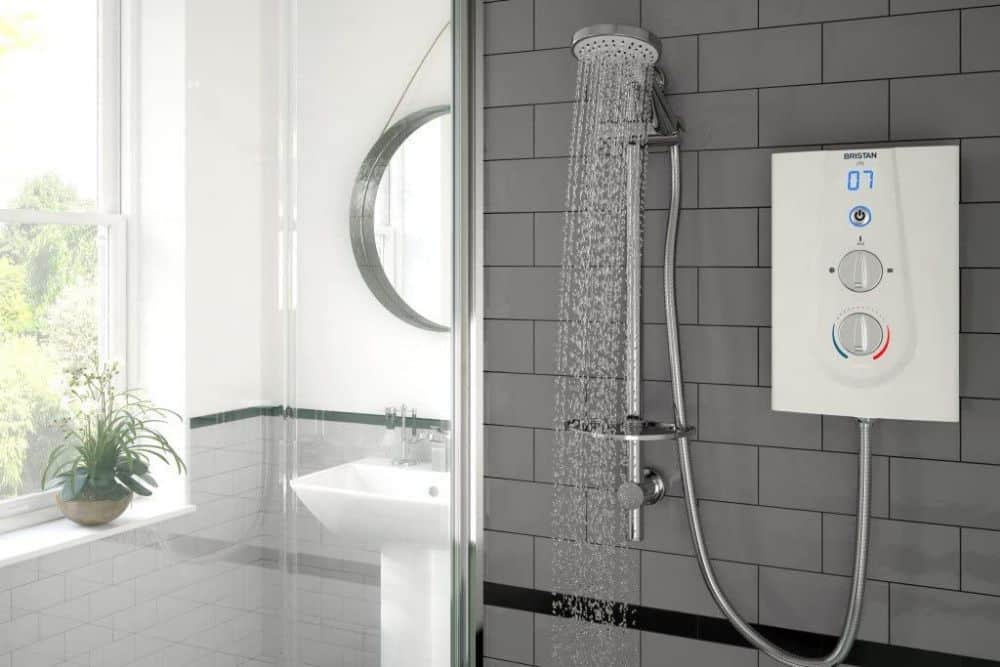Last Updated on
How much electricity does an electric shower use? We know it uses more than a regular one, but just how much exactly? It turns out that the answer to this is contingent upon multiple components. To work out the potential energy consumption of an electric shower, here are some useful tips to consider in order to understand precisely how much electricity is consumed when taking a hot or cold bath. So let’s dive into our guide and find out once and for all – just how much electricity does an electric shower use.
Table of Contents:
- How Much Electricity Does an Electric Shower Use?
- What Factors Affect How Much Electricity an Electric Shower Uses?
- Tips for Reducing Your Electric Shower’s Energy Consumption
- Conclusion
How Much Electricity Does an Electric Shower Use?
Electric showers, a favoured selection for many British domiciles, present an efficacious and cost-effective approach to warming up water. But how much electricity does an electric shower use?
The wattage, flow rate and duration of use are all factors that can affect the electricity consumption of an electric shower. Generally, electric showers in the UK have a wattage ranging from 8.5kW to 10.5kW; these figures provide an estimate of energy usage between 8.5 kWh and 10.5 kWh per hour when running at full power – approximately £1 worth depending on your tariff rate. This means that when running at full power for one hour, these showers will use between 8.5 kWh (kilowatt hours) and 10.5 kWh of energy respectively – or around £1 worth of electricity per hour depending on your tariff rate from your energy supplier.
It’s important to note that this figure can vary significantly depending on how long you’re using your electric shower each time you take a bath or shower – if you only spend 5 minutes in there instead of 30 minutes then obviously less energy will be consumed overall.
By considering the elements which influence the energy consumption of an electric shower, you can make wiser choices when selecting a suitable model for your home and garden. Let’s explore these factors in more detail in the next section.
What Factors Affect How Much Electricity an Electric Shower Uses?
Here are factors that affect your shower electric consumption:
Temperature Setting:
Electric showers heat up cold water as it passes through them – so the hotter you set your temperature dial, the more electricity will be required to reach that level of warmth. If you’re looking to conserve energy while still enjoying a comfortable shower, try gradually adjusting the temperature dial until you find an ideal setting that won’t require too much electricity.
Power Rating:

This is usually expressed in kilowatts (kW). It tells us how much electrical power is needed for an electric shower unit to operate at its maximum capacity – so if yours has a high kW rating then it will consume more electricity than one with a lower rating would do when running at full speed. To reduce your energy usage further consider buying an electric shower with a lower kW rating next time around.
By discerning the manifold components that shape how much electricity an electric shower requires, you can craft enlightened choices to cut back your energy expenditure and economise on invoices. Let’s now look at some tips for reducing your electric shower’s energy usage.
Tips for Reducing Your Electric Shower’s Energy Consumption
Electric showers can be a great way to cut back on energy and costs. However, if you’re not careful, it can also lead to higher electricity bills. To help you reduce your energy consumption when using an electric shower, here are some tips:

1. Lower the Temperature Setting – Most electric showers have adjustable temperature settings that allow you to lower the water temperature. This will help reduce the amount of energy used as well as make sure that you don’t scald yourself in the process.
2. Set the Timer – Electric showers, oftentimes equipped with a timer, are able to shut off after a set amount of time has passed; thereby helping to save electricity by limiting the length of your shower. Utilising a timer set to briefer intervals, like five minutes or less, can help guarantee that the shower isn’t running any more than necessary and squandering power in the meantime.
3. Install Low Flow Showerheads – Low flow showerheads use less water while still providing adequate pressure for washing away dirt and grime from your body without wasting too much hot water or electricity in the process. If possible, try replacing any existing high-flow showerheads with low-flow models to further reduce your energy consumption when taking a hot shower.
4. Take Shorter Showers – Taking shorter showers is one of the best ways to conserve both water and electricity when using an electric showerhead because it limits how long it runs each time it’s turned on (and thus reduces how much power is being consumed). Try setting yourself a goal of limiting each hot bath or shower session to no more than 10 minutes at most – this should be enough time for cleaning up without wasting too much energy in doing so.
Investing in pipe insulation kits is relatively inexpensive but will go a long way towards reducing wasted heat, and therefore wasted electricity, from running down drains during every single bath or shower session taken at home. This can help you save energy and money while still enjoying the comfort of hot showers.
Conclusion
So, how much electricity does an electric shower use? In a nutshell, electric showers can use a lot of electricity, but with some simple steps, you can reduce the amount of energy your shower uses. Gaining an understanding of the power consumption and elements that affect it, you can make better decisions regarding which shower is right for your residence. With these tips in mind, you’ll be able to save money on your energy bills while still enjoying a hot shower – without using too much electricity.
Paul is the type of person who never met a problem he couldn’t fix. He can always be found tinkering with something in his house, even if it isn’t broken! His tips and tricks are often shared on our site. He’s the one you call when something breaks because he has been known to improvise fixes for everything from leaky faucets to malfunctioning dryers.



